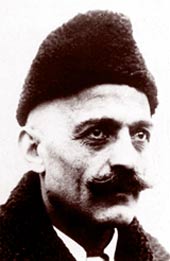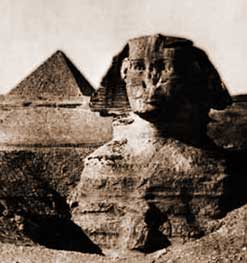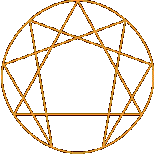|
The Fourth Way Teaching
|

 "What is the sense and significance of life on Earth and human
life in particular?" This question arose in George Ivanovich
Gurdjieff after coming "to a whole sensation" of himself at an
early age. The answers of religion and science of his time did
not satisfy, and intuiting that the wisdom societies of ancient civilizations
held the answer to his question, he and a group of friends, traveled
to remote areas in search of this esoteric knowledge. He
discovered the "true principles and ideas" of the ancient teaching
in pre-historic Egypt and Ethiopia. The teaching could show Man his place on
Earth and the meaning of his existence, as Gurdjieff said, "It
will seem strange to many people when I say that this prehistoric
Egypt was Christian many thousands of years before the birth of
Christ, that is to say, that its religion was composed of the same
principles and ideas that constitute true Christianity." Gurdjieff
then traveled to Babylon, the Hindu Kush, Tibet, Siberia and the
Gobi desert to gather elements of the teaching that had migrated
northward over time. He then reformulated the teaching and
introduced it to the West. Gurdjieff called it The Fourth Way.
"What is the sense and significance of life on Earth and human
life in particular?" This question arose in George Ivanovich
Gurdjieff after coming "to a whole sensation" of himself at an
early age. The answers of religion and science of his time did
not satisfy, and intuiting that the wisdom societies of ancient civilizations
held the answer to his question, he and a group of friends, traveled
to remote areas in search of this esoteric knowledge. He
discovered the "true principles and ideas" of the ancient teaching
in pre-historic Egypt and Ethiopia. The teaching could show Man his place on
Earth and the meaning of his existence, as Gurdjieff said, "It
will seem strange to many people when I say that this prehistoric
Egypt was Christian many thousands of years before the birth of
Christ, that is to say, that its religion was composed of the same
principles and ideas that constitute true Christianity." Gurdjieff
then traveled to Babylon, the Hindu Kush, Tibet, Siberia and the
Gobi desert to gather elements of the teaching that had migrated
northward over time. He then reformulated the teaching and
introduced it to the West. Gurdjieff called it The Fourth Way.
Gurdjieff overcame many obstacles to introduce The Fourth Way teaching to the West, yet not in the way he initially envisioned.
|
|
|
|
For Fourth Way videos, books, music, public events, workshops, seminars, and the past and present issues of The Gurdjieff Journal©, please visit www.gurdjiefflegacy.org.
|





 In the traditional ways, the way of the fakir, the way of the
monk or the way of the yogi, a man attempts to gain will over
either his body, emotions or intellect; he is asked to give up
everything at the start and retire from life. Upon entering the
Fourth Way, sometimes called the way of the "sly man," a man does
not give up anything in his ordinary life. He stays in life and
works with all three sides of himself, his instincts, emotions
and intellect; this re-aligns and balances him. As being and
knowledge increase so does understanding. Seeing himself as he
is, he begins to feel his contradictions, conscience is awakened,
not the morality of personality, but conscience that is the same
for all men.
In the traditional ways, the way of the fakir, the way of the
monk or the way of the yogi, a man attempts to gain will over
either his body, emotions or intellect; he is asked to give up
everything at the start and retire from life. Upon entering the
Fourth Way, sometimes called the way of the "sly man," a man does
not give up anything in his ordinary life. He stays in life and
works with all three sides of himself, his instincts, emotions
and intellect; this re-aligns and balances him. As being and
knowledge increase so does understanding. Seeing himself as he
is, he begins to feel his contradictions, conscience is awakened,
not the morality of personality, but conscience that is the same
for all men.

 Never before known, The Fourth Way is whole and complete by
itself and it is not a permanent way as the three traditional ways.
Gurdjieff introduced the teaching
to the West, for he said, "Unless the 'wisdom' of the East and
the 'energy' of the West could be harnessed and used harmoniously,
the world would be destroyed." In view of the current world
situation, the attack on the World Trade Center, the subsequent
Afghan and Iraq wars and maybe even Iran and North Korea,
this is not difficult to envision.
Never before known, The Fourth Way is whole and complete by
itself and it is not a permanent way as the three traditional ways.
Gurdjieff introduced the teaching
to the West, for he said, "Unless the 'wisdom' of the East and
the 'energy' of the West could be harnessed and used harmoniously,
the world would be destroyed." In view of the current world
situation, the attack on the World Trade Center, the subsequent
Afghan and Iraq wars and maybe even Iran and North Korea,
this is not difficult to envision.
